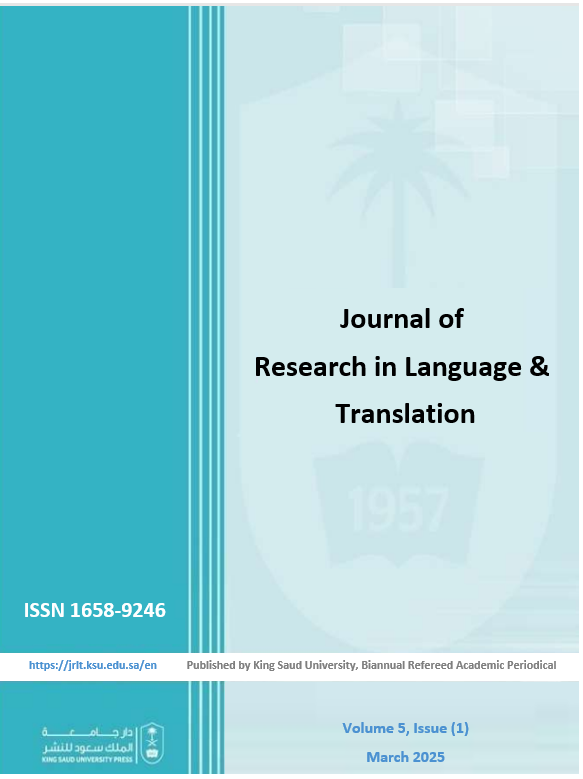Exploring EFL Instructors’ Awareness of Metacognitive Strategy Use in Saudi Higher Education Institutions
DOI:
https://doi.org/10.33948/JRLT-KSU-5-1-4Keywords:
Metacognition, EFL Instructors, Higher Education, Saudi Arabia, Language InstructionAbstract
Metacognition is a crucial component of the psychology of foreign language instruction. Although metacognitive strategies are essential, there is limited understanding of how EFL instructors recognise and implement them in their teaching practises due to the lack of studies focusing on instructors in higher education institutions within the Saudi context. This study explores the awareness of metacognitive strategy among EFL instructors in Saudi higher education institutions. The participants were 160 instructors, consisting of 80 males and 80 females, who were selected using a nonprobability convenience sampling method from various universities and colleges in Saudi Arabia. The Metacognitive Awareness Inventory (MAIT) by Balçıkanlı (2011) was used to assess gender differences and categorise metacognitive awareness into six levels: declarative knowledge, procedural knowledge, conditional knowledge, planning, monitoring, and evaluating. The analysis showed no statistically significant gender-based differences in EFL instructors' awareness of metacognitive strategy, nor among the subcategories of metacognition. This study offers insights and suggestions for andragogical practises in higher education institutions. Instructors are encouraged to attend training workshops that increase their awareness of metacognitive practises. These professional development opportunities will enable educators to reflect critically on their instructional philosophy, enhancing their classroom effectiveness. Additionally, researchers are advised to conduct further research exploring higher education institutions to bridge the gap between theoretical framework and practical implications.

